Philip Yancey's Blog, page 15
December 18, 2013
Hip Christian Books
As I look back on the pile of books I read in 2013, a number of them seem to fall into a new genre. “Christian hip,” I’ll call it. Move over John Stott, Chuck Colson, and Max Lucado. These books circle around faith matters in a decidedly non-traditional way. Many of the authors came out of a strict evangelical or fundamentalist background, and they write about their spiritual detours in a loose, memoir-type style with a few obligatory bad words sprinkled in.
Two publishers have devoted an entire line of books to this new genre: Jericho Books by Hachette/Faith Words and Convergent Books by Crown/Penguin/Random House. (In this day of corporate mergers, publishers have multiple names, like royalty.) I usually give their books the exercise machine test. If they hold my interest for thirty minutes on an exercise bike or elliptical machine, I’ll read them more carefully later. The following passed that test.
 Losing Your Faith, Finding Your Soul by David Robert Anderson was the most rewarding discovery, and I marked it up heavily. An Episcopal minister in Connecticut, Anderson has been on a journey toward an honest faith that may rattle some evangelicals but comfort many others. His well-researched book includes some lovely stories and juicy quotes, such as, “The comedian Cathy Ladman was not far wrong when she remarked, ‘All religions are the same: religion is basically guilt with different holidays.’”
Losing Your Faith, Finding Your Soul by David Robert Anderson was the most rewarding discovery, and I marked it up heavily. An Episcopal minister in Connecticut, Anderson has been on a journey toward an honest faith that may rattle some evangelicals but comfort many others. His well-researched book includes some lovely stories and juicy quotes, such as, “The comedian Cathy Ladman was not far wrong when she remarked, ‘All religions are the same: religion is basically guilt with different holidays.’”
 The Invisible Girls by Sarah Thebarge ranks as my personal favorite in this genre. At age 27, Sarah Thebarge had life in her pocket, with a boyfriend, an Ivy League degree, and a good job. Breast cancer, a cross-country move, and a painful breakup changed all that, and yet her own travails are not the main focus of the book—a family of Somali refugees is. What happens next in her beautifully told story proves the truth of Jesus’ statement that we find our lives by giving them away.
The Invisible Girls by Sarah Thebarge ranks as my personal favorite in this genre. At age 27, Sarah Thebarge had life in her pocket, with a boyfriend, an Ivy League degree, and a good job. Breast cancer, a cross-country move, and a painful breakup changed all that, and yet her own travails are not the main focus of the book—a family of Somali refugees is. What happens next in her beautifully told story proves the truth of Jesus’ statement that we find our lives by giving them away.
 Speaking of giving away your life, Jonathan Wilson-Hartgrove makes that a career. Along with Shane Claiborne, he founded the New Monastic movement. He and his wife Leah live in a Christian community that opens its door wide to any straggler. What would happen if we took literally Jesus’ command to “Give to everyone who asks”? Strangers at My Door gives the answer, in a way that inspires the reader toward hospitality rather than guilt.
Speaking of giving away your life, Jonathan Wilson-Hartgrove makes that a career. Along with Shane Claiborne, he founded the New Monastic movement. He and his wife Leah live in a Christian community that opens its door wide to any straggler. What would happen if we took literally Jesus’ command to “Give to everyone who asks”? Strangers at My Door gives the answer, in a way that inspires the reader toward hospitality rather than guilt.
 Addie Zierman’s When We Were on Fire is a model of the raised-Christian-then-left-the-church-and-maybe-the-faith-then-warily-climbed-back memoir. She pulls it off, and Publishers Weekly just named her book as one of the top five religious books of 2013. Here’s a sample: “Some of us searched longer than others, but in the end we faded out. We were looking for Jesus. Instead we found programs, guilt, and awkward small talk. We found fog machines and Five-Simple-Steps-to-Spiritual-Growth and fill-in-the-blank Bible studies. So we started sleeping in on Sunday mornings. We went to the farmers market and bought good things straight from the earth. We drank our morning coffee at small café tables outside, and people walked by with their dogs at a slow, Sunday-morning pace. It felt more like rest to us than those chaotic church mornings, when we moved through the loud small talk of the church foyer and felt invisible.”
Addie Zierman’s When We Were on Fire is a model of the raised-Christian-then-left-the-church-and-maybe-the-faith-then-warily-climbed-back memoir. She pulls it off, and Publishers Weekly just named her book as one of the top five religious books of 2013. Here’s a sample: “Some of us searched longer than others, but in the end we faded out. We were looking for Jesus. Instead we found programs, guilt, and awkward small talk. We found fog machines and Five-Simple-Steps-to-Spiritual-Growth and fill-in-the-blank Bible studies. So we started sleeping in on Sunday mornings. We went to the farmers market and bought good things straight from the earth. We drank our morning coffee at small café tables outside, and people walked by with their dogs at a slow, Sunday-morning pace. It felt more like rest to us than those chaotic church mornings, when we moved through the loud small talk of the church foyer and felt invisible.”
 Pastrix, by Nadia Bolz-Weber, covers similar terrain on steroids. Tattooed like a motorcycle mama, potty-mouthed, an in-your-face standup comic, Nadia surprised everyone—especially herself—by becoming a Lutheran minister and founding The Church for All Sinners and Saints in my home city of Denver. Her style may be off-putting to some, but underneath she writes with passion about a contentful faith. I think of her as a sheep in wolf’s clothing.
Pastrix, by Nadia Bolz-Weber, covers similar terrain on steroids. Tattooed like a motorcycle mama, potty-mouthed, an in-your-face standup comic, Nadia surprised everyone—especially herself—by becoming a Lutheran minister and founding The Church for All Sinners and Saints in my home city of Denver. Her style may be off-putting to some, but underneath she writes with passion about a contentful faith. I think of her as a sheep in wolf’s clothing.
Some of these books center on a particular issue. Sober Mercies, by Heather Kopp, gives a harrowing account of a committed Christian, herself an author and married to a Christian publishing executive, who has a secret life as an alcoholic. Torn, by Justin Lee, brings both poignancy and compassion to the church’s ongoing conversation about homosexuality. Mixed-Up Love, by Jon Sweeney and Michal Woll, tells what happens when a kid from a blue-blood evangelical family becomes Catholic and marries a Reconstructionist rabbi. Holly Burkhalter’s Good God, Lousy World & Me explores the age-old question of a loving God and a world of evil through the lens of the International Justice Mission, an organization that responds to evil not by philosophizing but by advocacy and activism.
Other books give a kind of apologetic for the church. In When “Spiritual But Not Religious” Is Not Enough, Lillian Daniel makes a strong case for faith not being a solitary undertaking. Rob Strong, who lives in Massachusetts, “the least churched state in the USA,” tries in The Big Guy Upstairs to explain faith to those who would not understand Christian lingo.
 And just so you know I haven’t been paid by publishers to hawk their books, I’ll say that not all “Christian hip” books keep me reading. I couldn’t make it through Rob Bell’s Love Wins because I found the staccato, one-sentence paragraphs grating. The syntax got in the way of the content; I felt more like I was reading a catalog than a book. (However, I found Rob Bell’s latest, What We Talk About When We Talk About God, refreshing and stimulating.) For the same reason, I couldn’t relate to a couple of books by Jay Bakker, son of Jim and Tammy Faye. My hipster tolerance has its limits.
And just so you know I haven’t been paid by publishers to hawk their books, I’ll say that not all “Christian hip” books keep me reading. I couldn’t make it through Rob Bell’s Love Wins because I found the staccato, one-sentence paragraphs grating. The syntax got in the way of the content; I felt more like I was reading a catalog than a book. (However, I found Rob Bell’s latest, What We Talk About When We Talk About God, refreshing and stimulating.) For the same reason, I couldn’t relate to a couple of books by Jay Bakker, son of Jim and Tammy Faye. My hipster tolerance has its limits.
 One last mention: A bright literary light in the U.K., Francis Spufford, caused a stir with Unapologetic: Why, Despite Everything, Christianity Can Still Make Surprising Emotional Sense. Great Britain is much further down the post-Christian path than the U.S., and Spufford makes his points by appealing to life experiences rather than theological ideas. To almost everyone’s surprise, he ends up fairly orthodox—though with a lot of bad words thrown in. That seems to be the essential ingredient in hipsterism.
One last mention: A bright literary light in the U.K., Francis Spufford, caused a stir with Unapologetic: Why, Despite Everything, Christianity Can Still Make Surprising Emotional Sense. Great Britain is much further down the post-Christian path than the U.S., and Spufford makes his points by appealing to life experiences rather than theological ideas. To almost everyone’s surprise, he ends up fairly orthodox—though with a lot of bad words thrown in. That seems to be the essential ingredient in hipsterism.
December 6, 2013
Mandela’s Miracle
On a visit to South Africa I visited the tidy home of Nelson Mandela in the Soweto township, which is preserved as a museum. Just down the street sits Bishop Desmond Tutu’s house. A slum made famous by its bloody uprisings now boasts the only street in the world that has produced two Nobel Peace Prize winners.
Speaking like an Old Testament prophet, Bishop Tutu gives God the credit for the miracle  of reconciliation in his country. “God does have a sense of humor. Who in their right minds could ever have imagined South Africa to be an example of anything but the most awfulness, of how not to order a nation’s relations and its governance? We South Africans were the unlikeliest lot, and that is precisely why God has chosen us. We cannot really claim much credit ourselves for what we have achieved. We were destined for perdition and were plucked out of total annihilation. We were a hopeless case if there was one.”
of reconciliation in his country. “God does have a sense of humor. Who in their right minds could ever have imagined South Africa to be an example of anything but the most awfulness, of how not to order a nation’s relations and its governance? We South Africans were the unlikeliest lot, and that is precisely why God has chosen us. We cannot really claim much credit ourselves for what we have achieved. We were destined for perdition and were plucked out of total annihilation. We were a hopeless case if there was one.”
When black Africans finally got the vote and seemed certain to overthrow the white apartheid government, nearly everyone predicted a bloodbath. After all, 14,000 people had already died in violence between the time of Nelson Mandela’s release from prison in 1990 and his election to the presidency in 1994. Confounding the experts, however, the new regime did not yield to the politics of revenge. Even today, South Africans call it “the miracle.”
Nelson Mandela taught the world a lesson in grace when, after emerging from prison after twenty-seven years and being elected president of South Africa, he asked his jailer to join him on the inauguration platform. He then appointed Archbishop Desmund Tutu to head an official government panel with a daunting name, the Truth and Reconciliation Commission. Mandela sought to defuse the natural pattern of revenge that he had seen in so many countries where one oppressed race or tribe took control from another.
Bill Clinton recalled a conversation he had with Nelson Mandela, one that shows the tone of moral leadership that emerged from that “unlikeliest lot.” “Didn’t you really hate them for what they did?” Clinton asked, referring to Mandela’s twenty-seven years in prison.
 Mandela replied, “Oh, yeah, I hated them for a long time. I broke rocks every day in prison, and I stayed alive on hate. They took a lot away from me. They took me away from my wife, and it subsequently destroyed my marriage. They took me away from seeing my children grow up. They abused me mentally and physically. And one day, I realized they could take it all except my mind and my heart. Those things I would have to give to them, and I simply decided not to give them away.”
Mandela replied, “Oh, yeah, I hated them for a long time. I broke rocks every day in prison, and I stayed alive on hate. They took a lot away from me. They took me away from my wife, and it subsequently destroyed my marriage. They took me away from seeing my children grow up. They abused me mentally and physically. And one day, I realized they could take it all except my mind and my heart. Those things I would have to give to them, and I simply decided not to give them away.”
Clinton pressed him. “Well, what about when you were getting out of prison? I got my daughter Chelsea up and we watched you on television as you walked down that dirt road to freedom. Didn’t you hate them then?”
Mandela said, “As I felt the anger rising up, I thought to myself, ‘They have already had you for twenty-seven years. And if you keep hating them, they’ll have you again.’ And I said, ‘I want to be free.’ And so I let it go. I let it go.”
 With that attitude Mandela set a tone for the entire country. Black leaders urged their followers not to give in to their anger, however merited, but instead to let it go, to move forward in their newly won freedom. White churches, many of which had supported the oppressive white regime, were taken aback by the new spirit of cooperation. Gradually they let go of their own fear and anger, with renewed hope that they would have a share in the country’s future after all.
With that attitude Mandela set a tone for the entire country. Black leaders urged their followers not to give in to their anger, however merited, but instead to let it go, to move forward in their newly won freedom. White churches, many of which had supported the oppressive white regime, were taken aback by the new spirit of cooperation. Gradually they let go of their own fear and anger, with renewed hope that they would have a share in the country’s future after all.
This week, Nelson Mandela “let it go” one final time. After an extraordinary life, he got his deepest wish: “I want to be free.”
(Partially adapted from What Good Is God?)

November 24, 2013
Who Believes What?
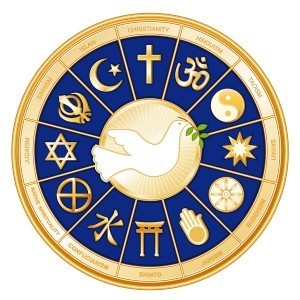 When the Willow Creek Community Church did a survey they found that some in their congregation, and especially their post-Christian friends, thought that all world religions are essentially the same. If their doctrines are similar and point in the same direction, why is it important to choose the “right” one? In response to the survey, the church invited a learned representative from each of the major faiths to a service. A Hindu, Buddhist, Muslim, Jew, and Christian sat together on the platform and answered questions from the moderator Bill Hybels.
When the Willow Creek Community Church did a survey they found that some in their congregation, and especially their post-Christian friends, thought that all world religions are essentially the same. If their doctrines are similar and point in the same direction, why is it important to choose the “right” one? In response to the survey, the church invited a learned representative from each of the major faiths to a service. A Hindu, Buddhist, Muslim, Jew, and Christian sat together on the platform and answered questions from the moderator Bill Hybels.
I cannot do full justice to the fascinating discussion that took place that Sunday without reproducing it verbatim. Barring that, I will condense some of the main points instead. Keep in mind that a different spokesperson for one of the faiths might have come up with different responses, but these do broadly reflect some of the differences in common beliefs.
What is your understanding of God?
Hindu: God was All-consciousness, before creation, and out of his playtime he created the universe. So God in one form is the creation, and also to put life into it he entered the creation, countless times. Indeed, anyone can attain Godhood status by following the rules set out.
Buddhist: We focus not on God or gods, but on the teachings of Gautama Buddha who lived in the 5th century B.C. We strive, like the Buddha, to become enlightened human beings, who serve out of compassion and try to end suffering in the world.
Muslim: God is a mercy-giver. He is peace. He is the first and last. He is the owner of the Day of Judgment. He is the owner of the universe. He is the guide. He is the light. He is the Mercy.
Jew: I would suspect everyone here would recognize the God of Judaism through Judaism’s daughter religions, Christianity and Islam, both of which have patterned their own theology after the mother religion, Judaism.
Christian: God is all-powerful, all-knowing and everywhere present. He is spirit and exists eternally in three persons, God the Father, God the Son, and God the Holy Spirit. Also, he is a personal God, which means he invites me to get to know him and to grow in a deep, loving relationship with him.
A person comes to you and says, “My life is a mess, I have wandered very far away from God, I have misbehaved, I have done terrible things. I want to get close to God.” How would you instruct that person?
Hindu: He has to go to the Scriptures to read the holy books, and to go to the place of worship to where the holy ones are. And that would be only a stepping stone. From the books he will get instructions, and he must follow those instructions.
Buddhist: If a person is seeking a relationship with God, they have come to the wrong place because the Buddhist tradition is not focused on God. However, if you come to a Buddhist teacher and you’re troubled, depressed, angry or dissatisfied, you’ve come to the right place because they will be able to give you some very specific ways to change the way you think and to clean out the difficulties.
Muslim: We believe that all human beings are born believers. In their heart, regardless of how bad they are, there is a spot there that believes in God, and all we have to do is to bring about the point and to open the ears, to see and hear and feel the existence of God.
Jew: You can’t deal with deep-felt guilt simply through belief and a deity removing that terrible fear and guilt from you. If that were true there would be no need for psychologists, psychiatrists, psychoanalysts—to whom go priests, rabbis, pastors who do believe in God profoundly and devoutly, but that doesn’t always take care of the deepest quest of the human being. I think relating to God is relating pretty much as the deepest relationships available to human beings are.
Christian: This is the central message of the Bible, how to relate to God. When we put our faith in Jesus Christ alone, who paid the penalty for our sins, God promises to wipe our sins out, and we are brought into a growing, loving relationship with God.
What do you think of Jesus Christ? According to your tradition, who was Jesus of Nazareth?
Hindu: This world is God’s drama. He created so many religions, and he wanted variety for his own pleasure. When Jesus Christ came and Christianity came about, this was God manifesting himself in Jesus Christ. We have tolerance for all the gods, and we tell everyone you go pray to your god, if you have that belief, and continue what you are doing.
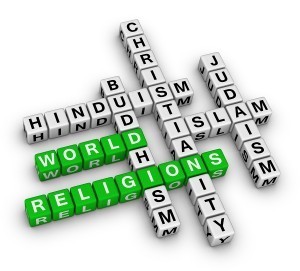
Buddhist: Jesus was a human being, a wise and compassionate human being who was concerned for the suffering of humanity. And the Buddhist tradition would also recognize the perspective that Jesus is the son of God, though not the only way to God.
Muslim: We believe in the prophets of God, which include Jesus, peace be upon him. But we do not believe he died on the cross. The Koran says he was not killed or crucified. He has been lifted by God and will be coming back to guide all mankind according to Islam.
Jew: As for the preeminence of Jesus over any other religion’s central figure, we leave that up to anybody to decide for themselves; we have our Bible and our prophets, and they have their Bible and their prophets, and we let it go at that.
Christian: Jesus Christ is the one and only Son of God, fully human and fully God, without sin, the only one worthy or qualified to forgive sin. He proved he was God when he was resurrected, and he also proved that he could defeat death and forgive sin.
One final question: What about the life after this life? If you were to die after this service, what would happen?
Hindu: The Hindus believe in reincarnation, a continuation of life. Before my birth, there must have been thousands of births before. Based on my actions and my next birth, I might go into a lower creature, or I might elevate myself, at least until I reach the state of full consciousness.
Buddhist: Afterlife is problematic. If enlightenment has occurred before death then there is complete liberation, or complete nirvana, which cannot be described or explained. It is neither eternal consciousness or annihilation. It is not in our intellectual capacity to comprehend it.
Muslim: Every human being has a reserved seat in heaven and in hell. The angels will ask you what happened in your life, who was your God, who was your prophet, what was your religion, what was your book. So at the moment of death, those who are going to heaven will be shown their reserved place in hell—and what happened by the grace of God that they were saved from going to that hell—then they will be sent to heaven. Otherwise, people will be shown the other way. We all have to be prepared.
Jew: Rabbis have said that the quality of your life after death depends on the character of your life on earth. “The righteous among all the nations of the world have a share in the world to come.”
Christian: The soul will live forever in eternity, and the choices that we make here and now will determine our eternal destiny. If we choose to ignore God or reject God, or to ignore the separation [sin] problem, we will spend an eternity separated from God, and that place is called hell. On the other hand, if we choose to solve the separation problem God’s way by receiving Jesus Christ into our lives, and allowing him to forgive our sins and bridge the gap, we will spend an eternity with God in heaven.
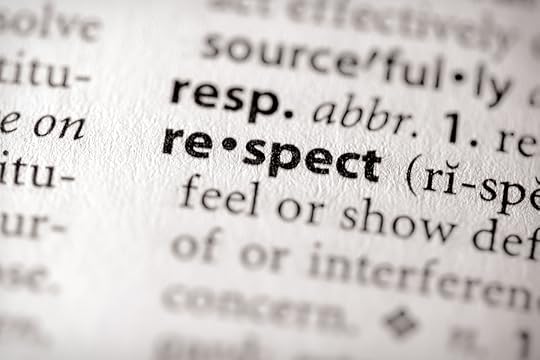 Bill Hybels concluded by challenging the congregation to become diligent seekers of the truth, doing the hard work of deciding what to believe and why. Clearly, not all religions teach the same answers to ultimate questions.
Bill Hybels concluded by challenging the congregation to become diligent seekers of the truth, doing the hard work of deciding what to believe and why. Clearly, not all religions teach the same answers to ultimate questions.
“We live in a very diverse world, and we have to learn to get along with and respect and show deference and kindness to people who represent different religions,” he said. “I hope, as we leave, you will leave with the words of Jesus on your mind: the highest kingdom law or value is the law of love. And while we may disagree about where we drive our stake of conviction and belief, we are called to be compassionate, understanding, and respectful of those who believe differently.”
November 9, 2013
Have Pen, Will Travel
It’s been quite a Fall season for the Yanceys! In September we made a trip to Bogotá, Colombia, and on the way back stopped off for a few days in the Amazon rain forest of Ecuador. We hiked on muddy trails, visited a butterfly farm and animal-rescue station, traveled from place to place in canoes, and slept under lazy ceiling fans. Janet felt right at home, since she spent her childhood in a similar setting as a missionary kid in the Peruvian jungle.

Amazon jungle explorer
The day we returned from South America it started to rain in Colorado. A front stalled over the foothills west of Denver where we live, and rain fell for five days straight, dumping our entire annual allotment of precipitation in less than a week. The creek behind our house became a roaring river, and we watched astonished as large trees and even bridges came zooming past, carried on waves big enough to surf. Several times I waded through soggy grass with a flashlight in the middle of the night to measure the creek as it rose a foot, two feet, up to five feet above normal, cresting just ten inches below the level that would have flooded our house. We had major damage to the creek bank, but nothing like the devastation experienced by others: 18,000 homes were damaged or destroyed by what’s being called “the thousand-year flood.”

Winter sunset in Colorado
And now we’re returning from a trip to the Midwest. We spent several days in downtown Chicago, visiting friends from the years we lived there. I felt like a country bumpkin in the big city, having lost the edge for things like jay-walking, parallel parking, coping with city traffic, and negotiating the rapid transit system. We also got a reminder of what we miss about the city: great museums, racial and cultural diversity, restaurants and coffee shops on every block, the background buzz of human ingenuity in all its forms. Cold weather moved in, and on our last day a flotilla of boaters brought in their yachts from Lake Michigan for winter storage; one by one the great iron drawbridges raised up, in a kind of reverse bow, as the stately sailboats passed beneath.

Chicago’s lakefront skyline as seen from the stainless steel sculpture
known as “The Bean.”
From Chicago we drove through stunning autumn scenery to Petoskey, Michigan, up near the top of “the mitt,” as Michiganders call their mitten-shaped state. I spoke at a C. S. Lewis festival in Petoskey, a small town that hosts one of 200 C. S. Lewis societies around the world. To date some 200 million of Lewis’s books have been sold. I know no better example of the expansive power of words: a bachelor all but the last few years of his life, a man who never had children, who rarely traveled and never learned to drive, nevertheless continues to stir the minds and hearts of children, agnostics, doubters, and believers alike through his amazing output of writings. Lewis died on November 22, 1963, as did Aldous Huxley, though both deaths were eclipsed by John F. Kennedy’s assassination that same day. This month, the 50th anniversary of his death, Lewis will be enshrined in the Poets’ Corner at Westminster Abbey, a well-deserved recognition of his accomplishments.
I never write a book without going through my shelf of Lewis books, thumbing through highlighted and earmarked pages for insights into whatever subject I’m grappling with. When I write about suffering, I know no better resources than The Problem of Pain and A Grief Observed, two very different books that taken together plumb both the intellectual puzzle and the human anguish.
Rain forest, big city, Midwestern fall—we’ve had our share of variety these last two months, and it’s time to settle in for winter. And I can’t think of a better place than Colorado for that!
Note: This post was first sent to my email list subscribers. If you’d like to receive special posts from me, just click on this link:
October 17, 2013
Fragile Beauty
It’s snowing in Colorado today. Don’t gloat too hard, though, those of you who live in warmer climes. I bet you’ve never seen a flower made spontaneously from frost! (Neither have I–they’re rather rare. I’m still looking though.)
When I climb mountains, I marvel at how much beauty goes unnoticed. Whole valleys of wild flowers never get seen unless a hiker wanders off the trail. Or think of all the coral reefs in the ocean yet to be discovered, with gorgeous tropical fish flitting around unobserved. “Beauty and grace are performed whether or not we sense them,” says Annie Dillard. “The least we can do is try to be there.”
Frost flowers may be forming somewhere in the world right now. I wonder if anyone will notice. This is from a recent blog I came across.
“The Incredible Frost Flower” *
It is as beautiful as it is rare. A frost flower is created
on autumn or early winter mornings when ice
in extremely thin layers is pushed out from the stems
of plants or occasionally wood.
This extrusion creates wonderful patterns which curl
and fold into gorgeous frozen petioles giving
this phenomenon both its name and its appearance.

Conditions have to be just so …for frost flowers to form.
Early winter is the optimum time to come across them
…as although the weather conditions
must be freezing it is vital that the ground is not,
so water can be sucked up in the stem.

As the temperature gets to freezing or just below
…the sap in the stem of the plants will expand.
As it does so, the outer layer of the stem comes under
increasing pressure, and microscopically thin cracks,
known as linear fissures, begin to form. These will
finally give way under the pressure of the sap and split open,
forming cracks for the water to come out through …
and then freeze.

Water is continuously being drawn up the plant’s
stem while the ground remains unfrozen.
It travels up the plants external structural axis (stem!)
and reaches the split or splits.
As it does so, it oozes slowly out and it freezes.
Yet more water is coming behind it….

This new water reaches the cracks and it too freezes,
pushing the previous slither of ice away from the stem.
And in this manner the amazing ‘ petals ‘ that you see
in these pictures are formed.

Incredibly, the frost flower effect can happen to wood
even when it has been made in to a fence or a gate,
as seen above. In this case the water is extruded through
the pores in the wood rather than cracks.

The frost flower has a number of other names:
you may know them as frost castles, ice castles,
ice blossoms, or even the very scientific-sounding
Crystallo-folia.
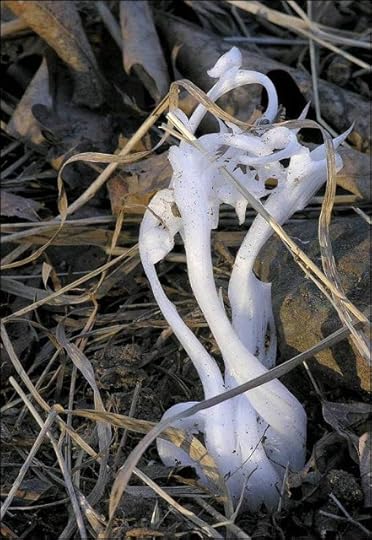
Yet the name is something of a misnomer: frost is
created by water vapor.
Frost flowers, on the other hand, are formed from
liquid water.

If you come across one – be careful!
Rather than attempt to pick it up, if you have a camera
or a phone with you …take a picture instead.
Frost flowers are incredibly delicate and will more often
than not shatter when touched.

Not only that, as they are made of such thin sheets
of ice, they will melt away as the sun rises higher
in the sky.

You may get frost flowers again the following day,
but unless the conditions are just right
the chances are… your first glimpse may be your last.
*Reprinted from the blogspot http://best-of-stories-etc.blogspot.c...
September 6, 2013
The Kingdom of God is Alive and Well
I’m writing halfway through our trip to South America, just as we leave Quito, Ecuador, for a visit to the jungle—we actually will reach our hotel by a 20-minute canoe ride! Yesterday I stood on the equator, with one foot in the northern hemisphere and one foot in the southern. It’s winter here, though, and Quito lies at an altitude of 8,000 feet, so the temperature has been fine.

An orphanage’s warm welcome of the Yanceys.
For some years now I have corresponded with a surgeon who works at a mission hospital located near the site of a tragedy in 1956. Then, Huaroni Indians (called Aucas at the time) killed five young missionaries who were trying to make contact with a tribe noted for their violent ways. Elisabeth Elliot lost her husband Jim, and her subsequent writings, such as Through Gates of Splendor, as well as widespread coverage of the event in Life magazine made the killings famous. The recent film End of the Spear revisits that time.
It seems violence is everywhere. When we get fragments of news from the US, we hear about the ongoing debate on whether to bomb Syria as punishment for their use of chemical weapons. Here in Ecuador we see street demonstrations with hammer-and-sickle flags and banners proclaiming “Long Live Maoism.” And we arrived here from the nation of Colombia, which has been fighting guerrilla wars for 60 years, at the cost of 200,000 lives.
As so often happens, the church flourishes in the midst of tragedy. Where missionaries died, a hospital now tends the sick and wounded. And where war has raged, people turn to the church for hope and comfort.
I wish every American could experience the church where I spoke last Sunday in Bogota. Casa Sobre la Roca (House Upon the Rock) has four services, with the first scheduled at 6:30 am. Only 3000 turned out for that one; the other three had standing-room only crowds of 3500. Most attenders are first-generation Christians, exuberant about their faith. They sing lustily and break into applause—or tears—throughout the sermon. The church was founded by a newspaperman/politician who got on the wrong side of a former President and had to flee to Miami. As conditions changed, he returned to found Casa Roca, which now has 27 branches in various cities.

In Colombia, even the translators are beautiful.
We got the full Latin treatment. The church hosted us like royalty, with flowers, signs, and gifts awaiting us at every turn. We heard moving stories from people who had been held hostage by guerrillas for several years, and from those who had lost loved ones. Yet we also met high government officials and leaders from both sides of the conflict, who have now reconciled, as well as former narcotics dealers and drug addicts, all of whom are celebrating their new life as followers of Jesus. One of the government’s top administrators is married to a former guerrilla chief, both now active in the church.
Hope is in the air in Colombia, and peace talks are taking place, yet the danger continues. Wherever we went, two bodyguards accompanied us. The hotel gave dire warnings about not walking outside, not trusting any taxi, not assuming that a uniformed policeman isn’t a fake. Traffic was terrible because farmers had rioted the day we arrived and the government deployed 50,000 troops and closed many roads, funneling them all into major arteries, which got completely clogged. After a while you get used to the sight of tanks and machine guns lining the roads.

Rescued from the streets, many of these kids go on to gain a college education.
A healthy church doesn’t just sit around singing songs and listening to praise music; it puts faith into action. Casa Sobre la Roca gives 15 percent of all its income to outside ministry programs, focusing especially on twelve orphanages. Most abortions are illegal in Colombia, which means many unwanted children are born. Some are sold into a kind of sexual slavery, others turned loose on the street to fend for themselves. The church takes in these children, houses them with loving “parents,” and gives them first-class treatment, including education in private schools. The kids surrounded us, touch-needy, holding our hands and hugging our legs. (They also insisted on touching my Afro-style hair, which is unlike anything they’ve seen among Colombians!)
Often I’ve said that my own faith gets fueled by trips to other countries, and this one is a good example. There are many good churches in the US, I know. There are also many where the aging congregation simply goes through the motions. Not here. The kingdom of God is alive and well. As Jesus said, it starts as a small seed, then grows into a great bush in which the birds of the air come to nest. Parts of South America are in the springtime of faith, and the region’s birds are finding a place to rest.
August 8, 2013
The Question That Never Goes Away
After traveling to Newtown, Connecticut, last December, I put aside other writing projects to write a short book called The Question That Never Goes Away. Even as I was writing it, more tragedies occurred: the Boston Marathon bombings, a fertilizer plant explosion, an earthquake in China, tornadoes in Oklahoma, wildfires in Colorado and Arizona.
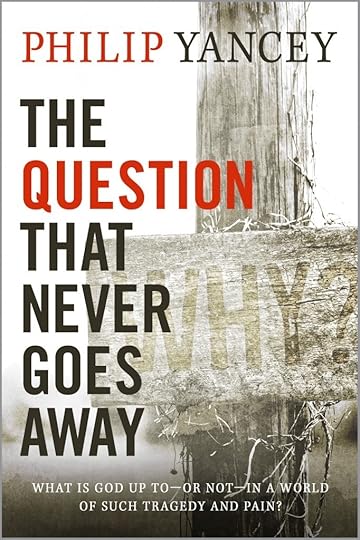
Meanwhile, nearly every day I get a Caring Bridge update on several friends who are undergoing treatment for cancer. Whether in large-scale tragedies or more intimate crises of hurt and loss, we all ask the question “Why would God allow this to happen?” Indeed it is the question that never goes away.
Traditional publishers wanted a year to publish the new book. (As a magazine editor I could never figure out why book publishers needed such a long lead time. Then, again, newspaper editors couldn’t understand why magazines needed several months’ lead time!) We decided to go to press more quickly, by releasing an e-book right away. For the next few months, we’ll have the e-book available for purchase even though the hard copy won’t be released until sometime in December.
When I went to Newtown in December 2012, I asked the publisher of my first book, Where Is God When It Hurts?, if they could donate some copies to the folks in Connecticut who were hurting. “We’ll do better than that,” they said. “We’ll make the electronic book available free for two weeks for anybody.”
No one bought an ad. No one promoted the free version. Yet somehow it went viral. Because some of you posted the notice on your social media sites or mentioned it to friends and relatives, word quickly spread. To our amazement, after the Newtown tragedy more than 100,000 people downloaded Where Is God When It Hurts? online.
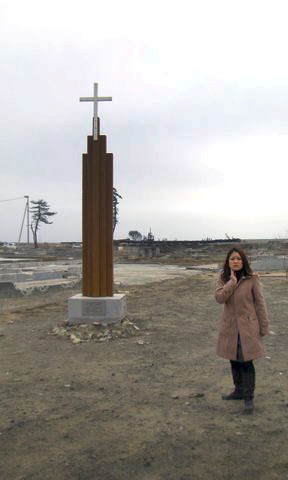 I hope something similar happens with this book. Questions stirred up by tragedy shake the faith of strong believers even as they sow confusion and doubt among seekers. For whatever reason, God has placed me in the midst of suffering people, and in this book I face into those questions honestly, and tell what I have learned from places like Newtown.
I hope something similar happens with this book. Questions stirred up by tragedy shake the faith of strong believers even as they sow confusion and doubt among seekers. For whatever reason, God has placed me in the midst of suffering people, and in this book I face into those questions honestly, and tell what I have learned from places like Newtown.
If you’re interested, you can buy the book by using the link at the bottom of this page. (Note: the format only works with an Amazon Kindle or one of the many Kindle apps. Later, other formats will become available.) And if you like it, I’d appreciate your spreading the word through Facebook, Twitter, and other social media sites. The world needs to hear words of comfort and hope in the midst of great suffering.
Thank you for your help—and be sure to let me know what you think of the book.
Philip
Amazon.com Widgets
July 19, 2013
Happy Birthday, Nelson Mandela
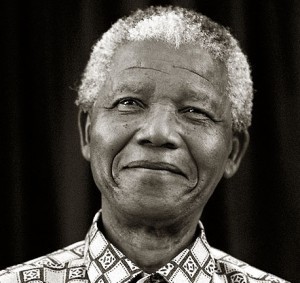 “Resentment is like drinking poison and then hoping it will kill your enemies.” —Nelson Mandela
“Resentment is like drinking poison and then hoping it will kill your enemies.” —Nelson Mandela
In 1994 Nelson Mandela was elected to the presidency of South Africa. Things were tense: 14,000 people had died in violence in the four years since his release from prison in 1990. Everyone predicted a bloodbath. Confounding the experts, however, the new regime did not yield to the politics of revenge. Instead, Mandela made peaceful overtures to the white minority and appointed Desmond Tutu to deal with atrocities not through court trials but through an innovative Truth and Reconciliation Commission that would allow the nation to forgive without forgetting.
Bill Clinton tells of a conversation he had with Nelson Mandela. “Didn’t you really hate them for what they did?” Clinton asked. Mandela replied, “Oh, yeah, I hated them for a long time. I broke rocks every day in prison, and I stayed alive on hate. They took a lot away from me. They took me away from my wife, and it subsequently destroyed my marriage. They took me away from seeing my children grow up. They abused me mentally and physically. And one day, I realized they could take it all except my mind and my heart. Those things I would have to give to them, and I simply decided not to give them away.”
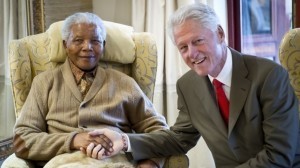
Clinton pressed him. “Well, what about when you were getting out of prison? I got my daughter Chelsea up and we watched you on television as you walked down that dirt road to freedom. Didn’t you hate them then?”
Mandela said, “As I felt the anger rising up, I thought to myself, ‘They have already had you for twenty-seven years. And if you keep hating them, they’ll have you again.’ And I said, ‘I want to be free.’ And so I let it go. I let it go.”
With that attitude Mandela set a tone for the entire country. Black leaders urged their followers not to give in to their anger, however merited, but instead to let it go, to move forward in their newly won freedom. White churches, many of which had supported the oppressive white regime, were taken aback by the new spirit of cooperation. Perhaps they would have a share in the country’s future after all.
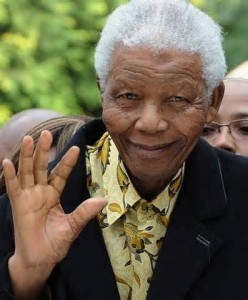 This week the nation, and the world, celebrated Nelson Mandela’s 95th birthday. Like Joseph in the Bible, he did not let his imprisonment embitter him. Instead, he grew stronger, and when he emerged, he showed the world a new way to combat injustice. Happy Birthday, Nelson Mandela.
This week the nation, and the world, celebrated Nelson Mandela’s 95th birthday. Like Joseph in the Bible, he did not let his imprisonment embitter him. Instead, he grew stronger, and when he emerged, he showed the world a new way to combat injustice. Happy Birthday, Nelson Mandela.
(Adapted from What Good Is God?)
July 4, 2013
Two Cheers For Radicals
I like radicals. Admittedly they make me uncomfortable, but I’ve concluded that’s a good thing. Last month I visited Jubilee Partners, a radical Christian community near Athens, Georgia, where several score people live on a 250-acre property.

They eat together, share battered cars, lawnmowers, and other material goods, and grow
much of their own food. They visit prisoners and provide a cemetery for homeless people  and executed prisoners. They organize peace delegations to regions of conflict. Mainly, though, they work to resettle political refugees from such places as Myanmar (Burma), Central America, Bosnia, Iraq, and Somalia. Thanks to their efforts, the small, white-bread town of Comer has become a melting pot of diversity.
and executed prisoners. They organize peace delegations to regions of conflict. Mainly, though, they work to resettle political refugees from such places as Myanmar (Burma), Central America, Bosnia, Iraq, and Somalia. Thanks to their efforts, the small, white-bread town of Comer has become a melting pot of diversity.
While visiting Jubilee Partners I had a flashback to the 1960s, when Christian communes were sprouting up all over, like wildflowers (or weeds, depending on your point of view). We had major causes to care about—the Vietnam war, poverty, civil rights, pollution—and radicals led the way in disrupting the lethargy of the 1950s and focusing attention on these issues. Some of them paid a price, in prison time and even martyrdom, before society and lawmakers began to listen and then to change.

Not everyone looks back on the Sixties with nostalgia. The radical message got mixed in with other cultural shifts (such as sex, drugs, and rock ’n roll) and in reaction much of the country and especially the church moved in a more conservative direction. Ever since, the media have played up groups like the Moral Majority and the Tea Party, all the while ignoring pockets of radical Christians who by their witness and example stand for global justice and a simpler lifestyle.
In my youth we lived under the shadow of nuclear war, and radicals painted scary scenarios of the apocalypse, none of which came true. Nowadays radicals raise the specter of global warming. In a magazine given to me at Jubilee Partners, a spokesman asks what Americans must do to reduce our carbon emissions to a globally sustainable level of two tons per person:
For starters, it would mean no air travel (period), mostly local transportation on foot or bicycle, vegetarian diets, locally produced food (even in winter), no air conditioners (anywhere), elimination of individual ownership of luxuries (including TVs, computers, washing machines), and reducing the average home size by at least half. Changing to high-efficiency light bulbs, driving a Prius, recycling, and buying carbon offsets are like taking a BB gun to a charging elephant.
Ouch. The rest of the world seems obsessed with restoring economic growth while these folks are calling for just the opposite. My defense mechanisms kick in and I think about the computers and printing presses involved in producing that magazine and the jet planes that carry radicals from one conference to another. Then, more soberly, I think about my own lifestyle, extravagant by global standards, and the guilt sets in. Good guilt that spurs me to action.
 The Bible has its own collection of radicals, known as the Prophets. In their own day they seemed half-mad. The normally urbane Isaiah walked around stripped and barefoot for three years to make a political statement (imagine how the Washington press corps would treat such a protest today). Ezekiel lay on his side for 390 days, bound by ropes, facing a clay model of Jerusalem. (Orthodox rabbis still forbid anyone under the age of thirty to read the first three chapters of Ezekiel.) Weird? When a tornado is snaking directly toward your neighborhood, you don’t deliver polished speeches: you jump up and down and scream like a madman. Even so, despite their extreme tactics and words most of the biblical prophets had little effect in their own day; their impact was felt in later generations, including our own.
The Bible has its own collection of radicals, known as the Prophets. In their own day they seemed half-mad. The normally urbane Isaiah walked around stripped and barefoot for three years to make a political statement (imagine how the Washington press corps would treat such a protest today). Ezekiel lay on his side for 390 days, bound by ropes, facing a clay model of Jerusalem. (Orthodox rabbis still forbid anyone under the age of thirty to read the first three chapters of Ezekiel.) Weird? When a tornado is snaking directly toward your neighborhood, you don’t deliver polished speeches: you jump up and down and scream like a madman. Even so, despite their extreme tactics and words most of the biblical prophets had little effect in their own day; their impact was felt in later generations, including our own.
 In contrast to the crusty prophets of the Bible, the contemporary Christian radicals I have met are some of the most congenial people I know. Shane Claiborne disrupts violent confrontations in his underprivileged Philadelphia neighborhood by demonstrations of juggling and other clown tricks. Kent Annan took his new bride to Haiti, where he tried to live at the same level as the average Haitian; his book Following Jesus Through the Eye of the Needle recounts his adventures with both humor and wry realism. Don Mosley, founder of Jubilee Partners, sends organic blueberries to cancer sufferers in order to build up their antioxidants. The late Millard Fuller had a reputation as a hugger and a role model for gregarious activism.
In contrast to the crusty prophets of the Bible, the contemporary Christian radicals I have met are some of the most congenial people I know. Shane Claiborne disrupts violent confrontations in his underprivileged Philadelphia neighborhood by demonstrations of juggling and other clown tricks. Kent Annan took his new bride to Haiti, where he tried to live at the same level as the average Haitian; his book Following Jesus Through the Eye of the Needle recounts his adventures with both humor and wry realism. Don Mosley, founder of Jubilee Partners, sends organic blueberries to cancer sufferers in order to build up their antioxidants. The late Millard Fuller had a reputation as a hugger and a role model for gregarious activism.
 Mosley and Fuller both renounced their millionaire legacies and together founded Habitat for Humanity, which has built or repaired 600,000 homes around the world. On my travels overseas I have met other Christian radicals who combat sexual trafficking; bring healing and comfort to victims of famine and disaster; dig wells and set up water purification systems; invent bicycle ambulances for places where no roads exist; provide housing for outcasts with leprosy; run homes for AIDS orphans. They often live without modern conveniences such as air conditioning or even running water, and brave tropical diseases and other dangers.
Mosley and Fuller both renounced their millionaire legacies and together founded Habitat for Humanity, which has built or repaired 600,000 homes around the world. On my travels overseas I have met other Christian radicals who combat sexual trafficking; bring healing and comfort to victims of famine and disaster; dig wells and set up water purification systems; invent bicycle ambulances for places where no roads exist; provide housing for outcasts with leprosy; run homes for AIDS orphans. They often live without modern conveniences such as air conditioning or even running water, and brave tropical diseases and other dangers.
Shane Claiborne once told me a moving story about reading my book The Jesus I Never Knew while on a Peace Team mission in Iraq to try to deter the impending war. Hearing that did little to assuage my guilt, for I wrote the book in the comfort of my home while a radical reader risked his life trying to put my words into practice.
Here’s what I like best about radicals: most of them don’t see themselves as radicals at all. They see themselves as simple pilgrims following Jesus, for in a mere three years of active work Jesus the original radical changed the world forever. Clarence Jordan, founder of Koinonia Partners in Americus, Georgia—a community that had a profound impact on President Jimmy Carter as well as Don Mosley and Millard Fuller—discounted his radicalism, insisting it was ordinary faith:

“So long as the word remains a theory to us and is not incarnated by our actions and translated by our deeds into a living experience, it is not faith. It may not be theology, but it is not faith. Faith is a combination of both conviction and action. It cannot be either by itself…. Faith is a life in scorn of the consequences.”
 Radicalism has its dangers, of course, and negative examples abound on both sides of the political spectrum. Most of us seek some kind of balance or golden mean. On the other hand, without radicals to prick our consciences now and then, would anything ever change? And God knows this world needs change.
Radicalism has its dangers, of course, and negative examples abound on both sides of the political spectrum. Most of us seek some kind of balance or golden mean. On the other hand, without radicals to prick our consciences now and then, would anything ever change? And God knows this world needs change.
June 7, 2013
Apostle To The Rednecks
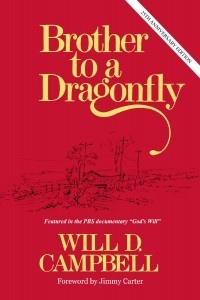 A truly original character died this week. I first got to know Will Campbell through his splendid book Brother to a Dragonfly. Typical of Will, he shone the spotlight not on his own story but rather on that of his alcoholic, self-destructive brother Joe.
A truly original character died this week. I first got to know Will Campbell through his splendid book Brother to a Dragonfly. Typical of Will, he shone the spotlight not on his own story but rather on that of his alcoholic, self-destructive brother Joe.
Ordained as a teenager, Will was destined to be a preacher. No one could have predicted, though, that he would choose for his flock first the leaders of the civil rights movement and then later a motley assortment of rednecks and Ku Klux Klansmen.
Preacher Will knew the civil rights luminaries intimately and became known as their chaplain. His own credentials were impeccable. The University of Mississippi had fired him from his post as director of religious life after he was seen playing ping pong with a black man. He endured many other indignities and threats of violence as he marched and protested and lobbied for justice. He joined Martin Luther King Jr. at the founding of the Southern Christian Leadership Conference and months later helped escort nine black
students through angry mobs in Little Rock, Arkansas. He was the lone white man to join the mourners at the Lorraine Motel in Memphis hours after King’s assassination.
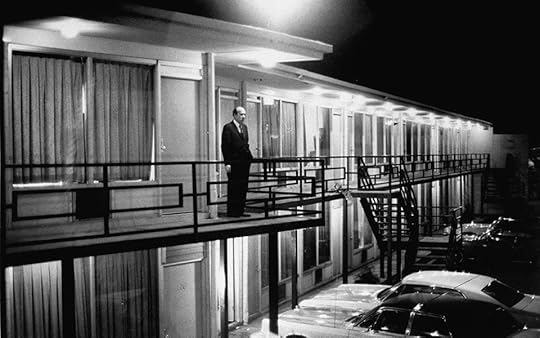
Yet, as Campbell finally concluded, “If you’re gonna love one, you’ve got to love ’em all.” Ultimately he realized that he was associating mainly with white liberals who saw the world just as he did. In those days, lots of people cared about oppressed minorities in the South—hence the marches, sit-ins, and court challenges. Who cared about the white rednecks?
A confrontation with his agnostic friend P.D. East brought this fact home to Campbell. East, a character in his own right, had communist leanings and published a paper outspoken on integration, neither stance endearing him to his Mississippi neighbors (death threats later chased him out of the state). Campbell, though, was one Christian whom East respected. “In ten words or less, what’s the Christian message?” East once challenged him.
We were going someplace, or coming back from someplace when he said, “Let me have it. Ten words.” I said, “We’re all bastards but God loves us anyway.” He didn’t comment on what he thought about the summary except to say, after he had counted the number of words on his fingers, “I gave you a ten word limit. If you want to try again you have two words left.” I didn’t try again but he often reminded me of what I had said that day.
I once repeated that story while speaking at Willow Creek Community Church in Chicago, and some irate listeners missed the point entirely, objecting to the word bastards. Actually, Campbell chose the word for its theological accuracy: spiritually we are illegitimate children, invited despite our paternity to join God’s family. The more Campbell thought about his impromptu definition of the gospel, the more he liked it.
Later, P. D. East put that definition to a ruthless test, on a day when an Alabama sheriff gunned down one of Campbell’s friends, a student from Harvard Divinity School.
“Let’s see if your definition of the Faith can stand the test,” East taunted the grieving Reverend Will. Did God love the gentle young man who had come south to lend his help to the civil rights cause? Of course. What about the redneck sheriff who murdered him in cold blood—did God love him? Campbell had to admit that, yes, God loved him too. Then came the final question, one that stabbed like an arrow to the heart: “Which one of these two bastards do you think God loves the most?”
At that moment, Will Campbell came face to face with the scandal of grace. He wrote:
Suddenly everything became clear. Everything. It was a revelation. The glow of the malt which we were well into by then seemed to illuminate and intensify it. I walked across the room and opened the blind, staring directly into the glare of the street light. And I began to whimper. But the crying was interspersed with laughter. It was a strange experience. I remember trying to sort out the sadness and the joy. Just what I was crying for and what I was laughing for. Then this too became clear.
I was laughing at myself, at twenty years of a ministry which had become, without my realizing it, a ministry of liberal sophistication….
I agreed that the notion that a man could go to a store where a group of unarmed human beings are drinking soda pop and eating moon pies, fire a shotgun blast at one of them, tearing his lungs and heart and bowels from his body, turn on another and send lead pellets ripping through his flesh and bones, and that God would set him free is almost more than I could stand. But unless that is precisely the case then there is no Gospel, there is no Good News. Unless that is the truth we have only bad news, we are back with law alone.
What Will Campbell learned that night was that grace extends not just to the undeserving, but to those who in fact deserve the opposite: to Ku Klux Klansmen as well as Black Panthers. His views on justice certainly did not change, and he kept agitating for it, side-by-side with the marchers. Yet he also became known as “an apostle to the rednecks.”
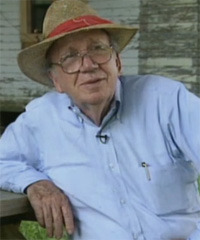 He explained, “I have seen and known the resentment of the racist, his hostility, his frustration, his need for someone upon whom to lay blame and to punish…With the same love that it is commanded to shower upon the innocent victim of his frustration and hostility, the church must love the racist.”
He explained, “I have seen and known the resentment of the racist, his hostility, his frustration, his need for someone upon whom to lay blame and to punish…With the same love that it is commanded to shower upon the innocent victim of his frustration and hostility, the church must love the racist.”
Campbell bought a farm outside of Nashville, and began to befriend some of the best names in Country Music as well as notorious racists and Klansmen. For years he sat on his front porch smoking a corncob pipe and drinking a homemade brew of who-knows-what while expounding the gospel of grace. He would grind his own cornmeal at a gristmill out back.
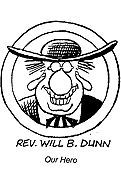 After Campbell pulled himself out of the limelight, he seemed to become more famous than ever. People like Johnny Cash, Willie Nelson, Waylon Jennings, Kris Kristofferson, Tom T. Hall, Dick Gregory, Jules Feiffer, and Studs Terkel sought him out. President Jimmy Carter spoke of him with appreciation. Doug Marlette’s syndicated comic strip, “Kudzu,” used him as the model for the Rev. Will B. Dunn, complete with a broad-brimmed clerical hat.
After Campbell pulled himself out of the limelight, he seemed to become more famous than ever. People like Johnny Cash, Willie Nelson, Waylon Jennings, Kris Kristofferson, Tom T. Hall, Dick Gregory, Jules Feiffer, and Studs Terkel sought him out. President Jimmy Carter spoke of him with appreciation. Doug Marlette’s syndicated comic strip, “Kudzu,” used him as the model for the Rev. Will B. Dunn, complete with a broad-brimmed clerical hat.
The rocking chair on his front porch stopped rocking a couple of years ago when Campbell suffered a stroke. And now the renegade preacher has fallen silent at the age of 88, leaving behind his wife of 67 years.
Thank you, Preacher Will, for letting the scandal of grace turn your world upside down, and then setting loose the message among the rest of us who badly need it. The world doesn’t consist of layers of “good people” and “bad people.” You got it right: We’re all bastards, but God loves us anyway. May we never forget either part of that formula.




